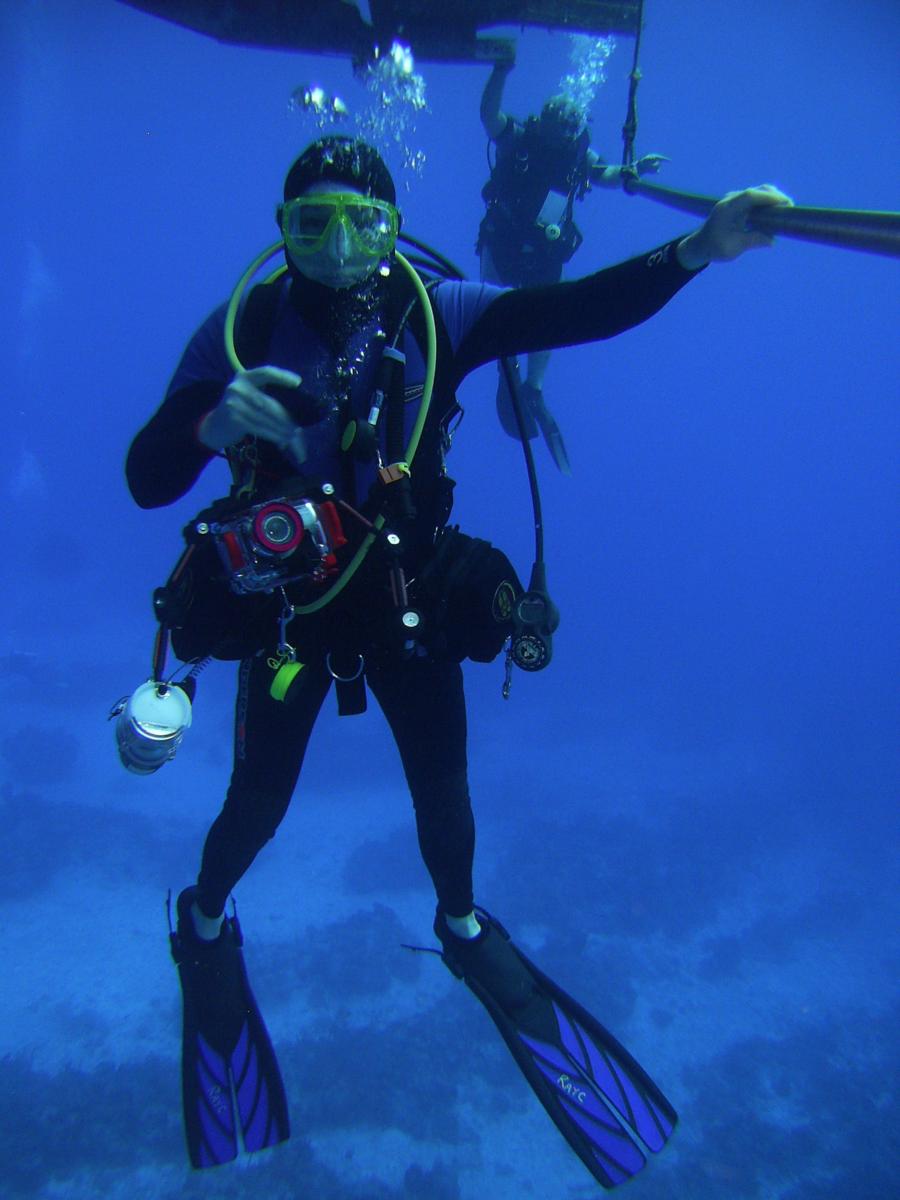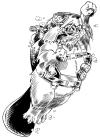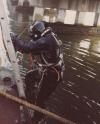
|
Greg - 7/16/2013 2:33 PM 
I don’t dive with a backplate, but I know people that do. The one thing that stands out for me is the ease of replacing/fixing the bladder. Plus, backplates seem to offer more customization options.
|
|

|
BP&W’s are all I have ever used. Started diving back in 77/78 and used an old Sea Gill At Pac. I wore it out and "upgraded" it with a comfort jacket, padded straps, etc. It made the thing so buoyant that I had to ad extra weights just to get down. Sold it and bought a basic BP&W rig last year with a hog strap, stainless steel back plate and 20lb bladder. The only diving I do is during the summer in the Keys, and all I need is a couple of lbs of weights when wearing a shorty. Your right about them being effortless. That is what I have always loved about diving with one, and way I wanted to recapture that with my new rig.
|
|

|
I dive a BP&W when I’m out diving for my own recreation. It allows you to configure a BCD that keeps it’s center of gravity in proper relation to your body for excellent horizontal swimming. This is exactly what you want for the majority of your time underwater. The BP&W is a modular system with nearly infinite choices of Plate, Bladders and weighting options to b used in both single tank and doubles configuration.
Because of this configuration choice complexity of choice I don’t advise it for beginners until they have mastered buoyancy control to a higher degree than most divers do until after logging a fair number of dives. This gives them the ability to gauge their choices and changes they may make over time and fine tune the kit to their diving. At this point diving becomes gliding underwater seemingly effortlessly. As a first BCD I generally suggest a Back Inflator style jacket as it will dive much closer to the optimum we seek and in fact many are so satisfied as to not seek to progress further.
As an instructor I use a back inflator style jacket when I’m working with open water students. Because of the integrated weight system to be able to kneel with stability underwater requires me to weight it with a bias to the rear trim pockets. Otherwise I’d need to use my hands to stay upright. This wouldn’t look very professional so I adjust the weight. This allows the back inflator to dive more like a BP&W but has the familiar jacket style for students to relate to.
|
|

|
Yep. On vacation with the SS backplate/sm wing. I don’t need to add any lead. Better yet match that up with full foot fins. Glide threw the water. There is no drag.
|
|

|
I haven’t used a jacket since my O/W cert dives. Directly after that, I purchased a back inflate and moved to BP/W within the next year. I love the configuration options, the ease of trim and the overall feel of a BP/W. To me, there is no better BC type. But, like anything else out there, you ask 100 people what they think about something, you’ll get 100 different opinons. Best thing to do is to go try out a back inflate or a BP/W. We all have opinions, but yours is the only one that should matter to you. :)
|
|

|
I have two BP&W set-ups, a FredT 7 pound stainless steel one with a 33 pound bladder for cold water and a Plastic Deep Sea Supply BP with their 22 pound bladder for warm water and travel. I move the same OMS weight pockets to whatever setup I’m using. Those same pockets also hold the spare light, a line cutter, Jon line, sausage, marker light, strobe amd mirror.
You can see in this photo how big those pockeys are, so much for streamlining :(
Everything stays put be it underwater or on the boat, no shifting as you move around. At Shark River inlet a couple of 20 something divers even commented while watching me climb up over the rocks that they had to take their jacket style BC’s off because the tank shifting from side to side was throwing their balance off.
|
|

|
I don’t think I can bring more insight than the guys already did. Most of the people once try it simply love it. Modular approach lets your BCD "grow" with you and your skills/needs. Since steel plate isn’t really travel friendly you could use aluminum.
If you’re still not convinced try at least "jacket style BCD" with back bladder. You’ll see a difference already.
|
|

|
An alternative is a back inflate BC. It trims out nice and relieves the drag of a jacket type BC.
I use a Mares Pegasus. The one draw back to these or back plates is they tend to push you face forward,
If you are used to floating high in a jacket it will take some getting used to. If you are comfortable with riding a bit
low in the water you should be fine. Dive Rite has tutorials on their web site you may find helpful.
look here for some great deals http://www.northeastscubasupply.com/backplate-and-wing-packages-save-big/
|
|

|
From LatitudeAdjustment: I have two BP&W set-ups, a FredT 7 pound stainless steel one with a 33 pound bladder for cold water and a Plastic Deep Sea Supply BP with their 22 pound bladder for warm water and travel. I move the same OMS weight pockets to whatever setup I’m using. Those same pockets also hold the spare light, a line cutter, Jon line, sausage, marker light, strobe amd mirror.
Nice set-up Latitude,
I’m guessing I may move to a back plate and harness some day. I think starting out with a jacket was OK when i thought I needed to ride high on the surface and wanted the security. Now I want to dive with a single reg, two ponds of weight, and no clutter.
|
|

|
I just started diving a wing a few months ago, a Dive Rite Travel EXP with 25lbs of lift. I got it mainly because it packed flatter in my suitcase and weighed less then the jacket. I used it with a commercial diving harness rather then a back plate to further reduce the weight in my suitcase. In the water I did not see much difference in performance between the wing and the jacket other then the wing is more streamlined. The commercial diving harness also helped to greatly reduce drag as the tank is positioned less then a 1/2 inch away from your back and rests between your shoulder blades so no STA is needed.
|
|